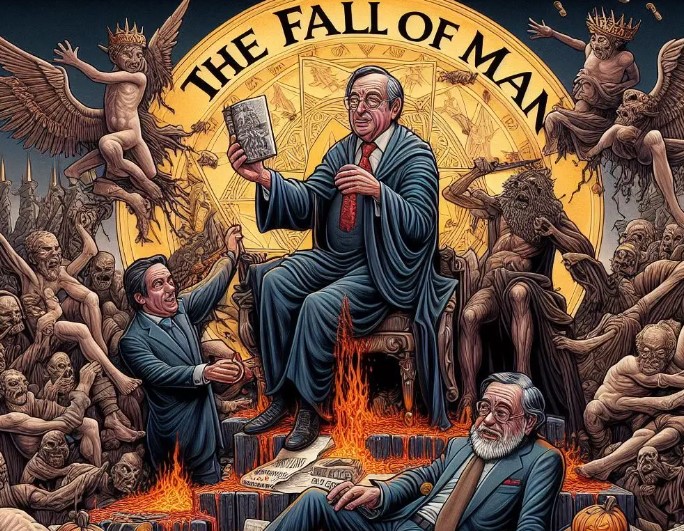The Spanish Socialist Workers’ Party (PSOE) is facing increasing suspicion after corruption allegations against high-ranking party members became public. At the center of the criticism is party leader and Prime Minister Pedro Sánchez. Internal voices from the PSOE, including prominent critic Emiliano García-Page, suggest that Sánchez may have known about the events and is attempting to cover them up.
The latest developments, particularly the incarceration of former PSOE Organization Secretary Santos Cerdán, have plunged the party into a deep crisis. The Central Operational Unit (UCO) of the Guardia Civil has described the network around Cerdán and former party official José Luis Ábalos as a “criminal organization,” whose core appears to be deeply rooted in the party. Cerdán’s arrest, who held a key position in the party until recently, has opened the eyes of many socialists.
Moncloa’s Wall of Silence: “Nothing New”?
The official line of the government and the Moncloa Palace, the official residence of the Prime Minister, remains: “There is nothing new.” Similar to previous searches at the party headquarters in Ferraz, attempts are being made to downplay the significance of the events. The incarceration of a former Organization Secretary, whose position was confirmed only six months ago at the 41st Federal Congress in Seville, is dismissed as a matter involving “a person who has nothing to do with the PSOE.”
However, this official narrative is meeting with increasing disbelief within the party. Insider reports and previous revelations by THE OBJECTIVE about Cerdán’s involvement and that of Minister of Finance María Jesús Montero’s chief of staff, Carlos Moreno, in commission demands, raise doubts about the party leadership’s alleged ignorance.
Growing Skepticism: “He’s Trying to Cover It Up”
The reaction of Pedro Sánchez himself was particularly disturbing for many PSOE leaders. “His reaction was that of someone who knew about it and is trying to cover it up,” it is said sotto voce from socialist circles. The idea that Sánchez could have known nothing about the criminal activities at the heart of his party is increasingly considered untenable. Even from within the ranks of those usually loyal to Sánchez, voices of indignation and distrust are being heard.
Emiliano García-Page, the President of Castilla-La Mancha, has once again positioned himself as a critical voice within the party, making it clear that “those who were decisive in his career cannot pretend to be victims of Cerdán.” This message, though not publicly supported by other leaders, is finding great resonance privately. Many see it as a direct allusion to Pedro Sánchez, who had elevated Cerdán to his position and granted him far-reaching powers within the party structure.
The End of “Sanchista Absolutism”?
Cerdán played a decisive role in shaping party finances and influenced personnel decisions down to the regional levels. Critics were systematically removed from important positions and lists. Given Cerdán’s far-reaching powers and the assumption that “Santos did not lift a finger without Pedro Sánchez knowing it,” the theory of Pedro Sánchez being deceived is being questioned. “His reaction is so strong… It’s scary. He’s trying to cover up, and that feeds the thesis that he was in the garlic,” critical voices remark.
Concern within the PSOE is growing ahead of the upcoming Federal Congress. Regardless of the different currents within the party, there seems to be agreement that Sánchez “must do something important,” as “Sanchista absolutism” is clearly at an end.
Cosmetic Adjustments or Real Reforms?
The hinted “revolution” in the party’s federal executive seems insufficient after Cerdán’s arrest. The decision to leave the organizational structure in the hands of the PSC (Partit dels Socialistes de Catalunya) and Montse Mínguez, who was considered Cerdán’s confidante, is criticized as a “cosmetic operation.” Many are calling for more drastic measures and a fundamental reorganization to regain the trust of the base and the public.
It is expected that Sánchez will not resign, but the party is in a tormenting internal situation. The current strategy of denial and the “firewall” is interpreted as a sign of weakness. The former “Pedro el Cruel,” who sidelined internal critics, seems to have lost his power. The acid test will be the Federal Congress next Saturday in Ferraz, where the regional party associations expect a clear statement. The PSOE is preparing for a longer resistance, but the parallels to last year, when Sánchez considered resigning while investigations were underway against his inner circle, are unmistakable.




